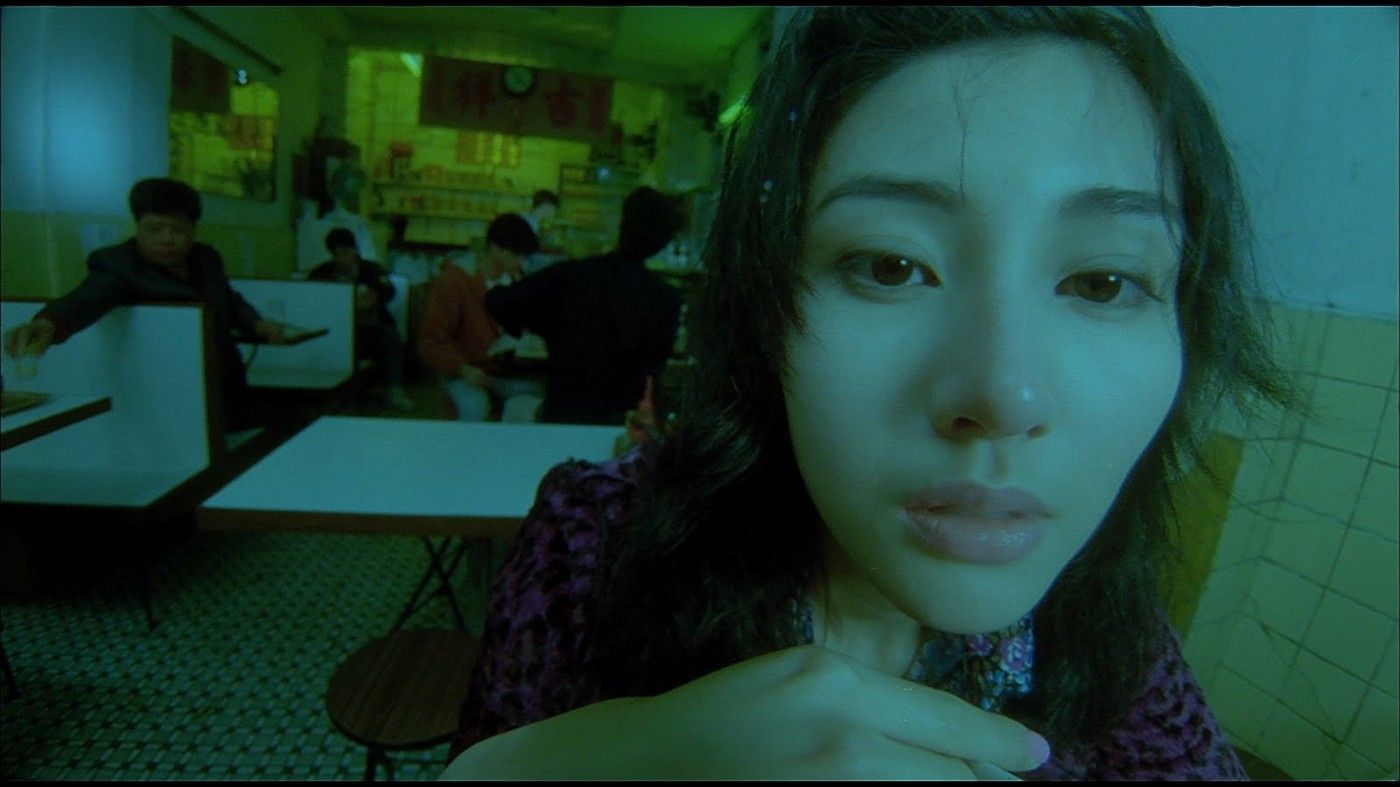Wong Kar-wai Capsule Reviews

Chungking Express (1994) — April 1, 2014
“Where do you want to go?”
“Doesn’t matter. Wherever you want to take me.”
“It’s still a very emotional towel.”
Ashes of Time (1994) — February 25, 2016
Dug out the original, pre-Redux version. Having seen this in its two forms a total of six times, I can safely say it really isn’t that hard to follow:
Tony Leung is going blind and is married to Carina Lau who is in love with The Other Tony Leung. The Other Tony Leung is in love with Maggie Cheung who is in love with Leslie Cheung. Leslie Cheung is in love with Maggie Cheung but she married his brother because he was too busy being a wandering swordsman. Jacky Cheung is a wandering swordsman who doesn’t like shoes, loses a finger getting revenge for a woman in exchange for some eggs, and brings his wife along with him while he wanders. Brigitte Lin is a person (or two people) who is in love with and wants to kill The Other Tony Leung and also herself/himself. Maggie Cheung gives The Other Tony Leung a magic potion that makes people forget their past traumas. It may or may not work.
Movie looks pretty cool too, gotta say that while the pale beauty of the original is nice, I love the phantasmagoric digital colors of the Redux.
Ashes of Time Redux (1994/2008) — February 26, 2016
Shocked at how similar the two versions are. Other than the re-recorded score and the hallucinogenically color-timed images, there is essentially no difference between the two. The Redux adds some on-screen titles connecting the characters more explicitly to the Legend of the Condor Heroes novels from which they’re taken, making the whole enterprise feel like backstory, like a prequel to adventures we won’t see, defining these wuxia heroes as much by their romantic disasters and haunting memories as by their martial skill or arcane codes of honor.
Fallen Angels (1995) — April 24, 2017
Not even Wong Kar-wai, Christopher Doyle, Massive Attack, and a literal lyrical assertion can make Leon Lai believably cool. He’ll always be the lovably dopey doofus of Comrades to me.
Happy Together (1997) — April 22, 2017
“I wonder what Hong Kong looks like upside down.”
The two greatest Chinese actors of their generation locked in a room and tearing each other apart with short spells apart spent luxuriating in some of Christopher Doyle’s most exuberantly beautiful images, while young Chang Chen floats around as the hope for the future.
Theory that the trouble with the relationship is not Leslie Cheung’s infidelity, it’s Tony Leung’s paranoid possessiveness. He steals Leslie’s passport, he packs the house with cigarettes so Leslie won’t ever leave, he secretly hopes Leslie won’t recover from his injuries. We never see Leslie with another man when they were together, only when they’re broken up, self-destructively flaunting his promiscuity in the face of Tony’s distrust. Leslie’s tragedy is that despite all that he still loves him and believes that if they start again, then Tony can change. There’s ample evidence of Tony’s lunatic behavior (smashing a guy who slept with Leslie with a bottle, stealing from his father’s business), but it’s unclear if he ever realizes his own faults, rather than blaming it all on Leslie. And rather than accept his faults and become a better person, in the end his jealous eye has turned toward young Chang. He does steal his picture, after all. I like to think that isn’t the case, that his tape recorded sobbing is evidence that he finally understands his guilt.
Or maybe the conventional reading, that Tony’s simply a stand-up guy driven to lunacy by his lover’s indiscretions, is correct. I don’t know. Maybe that's not even the conventional reading. But I do know that there’s a slow-motion shot, with Tony backlit by a setting sun as he takes a drink with the restaurant boys playing soccer in the street behind him, pink and green lens flares radiating out of the sun and dancing across the screen as the camera drifts right then left, that might be the most gorgeous single image Wong and Doyle ever made.
In the Mood for Love (2000) — March 29, 2017
The most beautiful people in the most beautiful movie.
“She dresses up like that to get noodles?”
That’s obviously Tony Leung’s kid, right?
The Grandmaster (2013) — February 6, 2018
Zhang Ziyi says “Maybe I’m the Will of Heaven” and I’m pretty sure she is.
I think the movie makes a whole lot more sense if the title is The Grandmasters, plural, rather than singular, because obviously it isn’t just about one person. And if it is about one person, that guy clearly is not Ip Man. The first half hour is about him, mostly. But the second hour is about Zhang and her family, grandmasters all. And the plural title would explain what Chang Chen is even doing in this movie. All those old men (familiar faces Yuen Woo-ping, Bruce Leung, Lo Hoi-pang among them) telling Ip what to do, they’re grandmasters too. Everyone’s a grandmaster. Ip Man just out-lasted and out-promoted them all.
Interesting that the two best fighters in the movie are played by Zhang Ziyi and Tony Leung, who despite their basic competence and experience in martial arts films, are far from experts. Also that Zhang’s big showdown is with Zhang Jin, who was once her stunt double (wikipedia says in Crouching Tiger Hidden Dragon, while imdb doesn’t credit him in that film but does in Hero and The Banquet, two films in which Zhang Ziyi also starred and would have had need for a double).
Added April 2, 2019:
Sometimes I forget that Wong Kar-wai made a kung fu movie that’s also a history of China in the 20th century that is as beautiful, weird, sexy, confounding, and expansive as any movie ever made.
